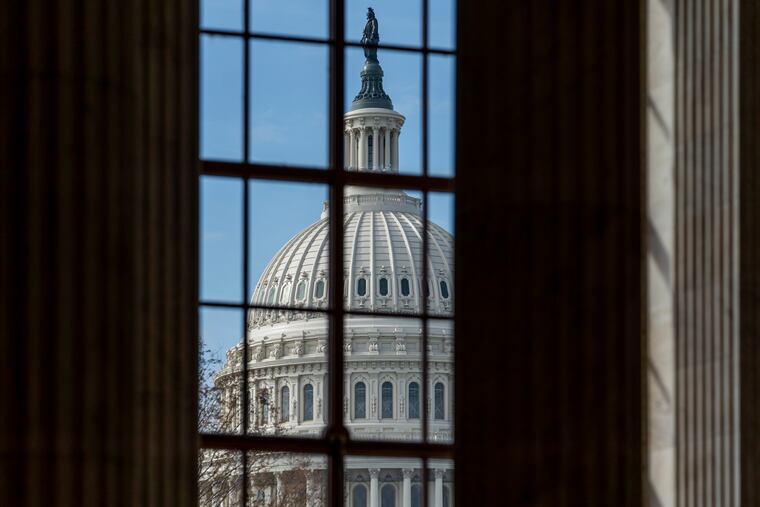Congress is acting fast on coronavirus aid — but not fast enough | Editorial
For a Congress deadlocked for years by brutal partisan conflict, the speed of its deliberations seems miraculous. At yet, given the nature of this crisis, it’s not going to be fast enough.

Congress has acted with laudable haste on a series of coronavirus relief packages. One, signed into law by President Donald Trump Wednesday night, is designed to help families and workers by providing free virus testing, as well as paid emergency and sick leave, an extension of unemployment benefits, as well as an extension of benefits like food stamps.
Another package that Congress has been crafting would bring financial relief to individuals and to industries devastated by the pandemic.
For a Congress deadlocked for years by brutal partisan conflict, the speed of its deliberations seems miraculous. And yet, given the nature of this crisis, it’s not going to be fast enough.
The most important thing right now is to get money and resources into people’s pocketbooks as fast as possible. This crisis has laid at least temporary waste to businesses and jobs practically overnight. And the pain will be protracted.
The attention on the financial stimulus package has focused on the checks — likely two checks of $1,000 each — that the government intends to send to every American. That will spell welcome relief — but it’s also not enough, and it’s not stimulus.
Economic stimulus is designed to push money back into the economy in the form of spending. With many businesses closed, the only thing people have to spend on now are essentials like food and shelter. That will be a huge relief for low- and middle-income workers — but that relief is temporary.
Congress and state governments need to pay closer attention to programs with farther-reaching impacts. That includes extending unemployment benefits — not just over a longer period of time than 26 weeks but extending who is eligible and how easily it is to receive benefits. Many workers in the gig economy, for example, need to be added to the system.
Despite the speed of Congress’ recent actions, the bureaucratic machine for actually distributing the relief is not built for expedience. Already, for example, state unemployment systems are taxed to the maximum with waves of people seeking help. States will need administrative resources from the federal government in order to staff up to handle the demand.
Meanwhile, as the financial stimulus and other relief measures get finalized, there are other concerns to consider:
Issuing checks for every American is an efficient way to help the majority of Americans — but not entirely. Actual checks will require people to leave their houses to go to the bank, and crowds are certain. Many others aren’t equipped to receive electronic payments. Still others are unbanked or underbanked. Some low-income people don’t have access to traditional financial institutions. (As well as people who don’t have fixed addresses.)
The pandemic has made the vulnerable among us even more vulnerable. The good news is that in this city and across the country, nonprofit and advocacy organizations (like Community Legal Services) provide a built-in infrastructure that can efficiently identify and reach the people who need help most. Certainly one of the stages of the multistage government aid plan should include an infusion of aid to nonprofits who can facilitate aid efforts to individuals.
The supreme challenges facing this emergency aid effort provide a good argument for uncoupling the financial relief efforts for individuals and those for industries and corporations. The kind of help business and industries need and how to deliver it is a very different kind of debate than the challenges of helping individual citizens and families.
Including individuals in financial aid proposals that are also designed to aid businesses may seem efficient, but experience shows that big congressional packages can be Trojan horses that smuggle in unsavory and unrelated items. Besides, there is a moral mandate for helping citizens, different than the economic mandate of helping industries and shareholders — especially industries that have been bailed out before and have used government support to build their own profit margins rather than benefitting workers. (Looking at you, airlines.) Help to industries should come with safeguards that favor workers as well as taxpayers.
This crisis has laid bare some hard truths: that we’ve built a society that has removed protections for workers, supported the creation and growth of the gig economy, kept wages low, and has continued to shrink basic supports for essential needs. The coronavirus is a public health emergency that has exposed the weaknesses inherent in the system as a whole. It’s clear the system will have to be rebuilt. We only hope that can begin in the near future.